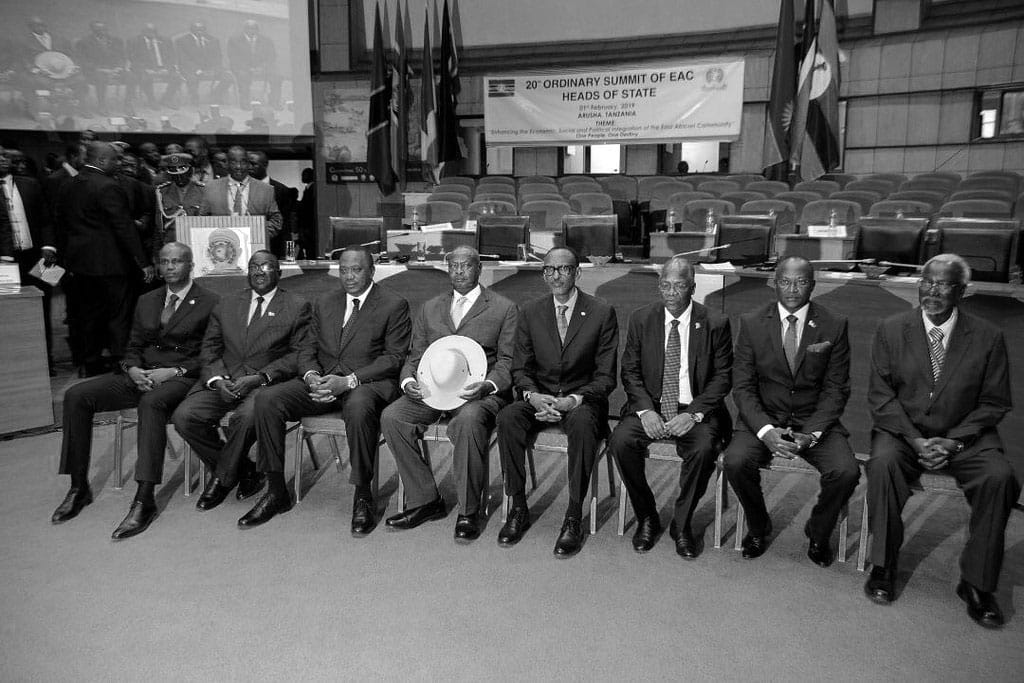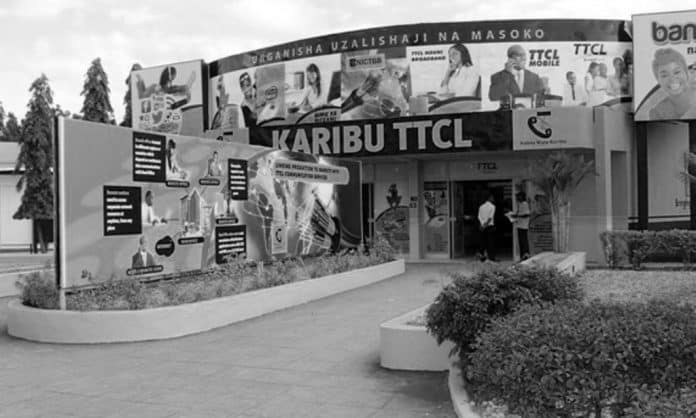Quick Overview of the Tanzania Telecommunications Corporation (TTCL)
Originally known as Tanzania Telecommunications Company Limited (TTCL), Tanzania Telecommunications Corporation is the biggest and oldest telecommunications firm in Tanzania with landline services. The company succeeded the defunct Tanzania Posts and Telecommunications Corporation in 1993. The Tanzanian Government solely owned TTCL until its partial privatization on 23 February 2001.
The Tanzanian Telecommunications Act of 1993 is the statute that governed TTCL. The company is licensed to offer basic landline telephone services in the country’s mainland including Zanzibar including ownership and operation of the mainland and Zanzibar’s public switched phone network.
Before the entry of mobile operators toward the end of 1994, TTCL public company limited was benefiting from a monopoly on the mainland of Tanzania including a duopoly on the island of Zanzibar, here Zanzibar Telecoms Limited (Zantel) had a license to offer fixed basic telephone services. The telecom company has been in various joint managements because of its past financial problems including having faced various restructuring phases.
The company has worked with Huawei Technologies Co. Ltd as an infrastructure vendor and with Ericsson a longstanding strategic supplier.
History of TTCL
Early history
TTCL originate from the East African telecommunications service. In 1933, the defunct East African Post and Telegraph Company handled Telephone, Postal, and Telegraph services in the 3 countries of East Africa including Tanganyika, Uganda, and Kenya. By 1951, the government of Britain substituted the East African Post and Telegraph Company with enactment of the East African Posts and Telecommunications Act of 1951 to take on the East African Posts and Telecommunications Administration.
Before independence of the 3 countries, the East African Community (EAC) was formed in 1967 well as replacing the East African Common Service Organization. Consequently, there was the establishment of the East African Post and Telecommunications Corporation (EAP&TC) to replace the East African Posts and Telecommunications Administration.

Nevertheless, a decade later, the dissolution of EAC in 1977 compelled each EAC member nation to re-establish independent national Postal, Telegraph, and Telephone businesses. consequently, in 1978 a parastatal was formed in Tanzania known as the Tanzania Posts and Telecommunications Corporation (TPTC).
During heavy restructuring of parastatals by the government of Tanzania in 1993, there was a liberalization of the telecommunication sector. This led to the apportioning of the TPTC; into three entities, including the Tanzania Telecommunications Company Limited (TTCL), the Tanzania Communication Commission (TCC), and the Tanzania Posts Corporation.
Partial Privatization
Because of poor management and increased domestic competition, the government decided to denationalize the company. O0n 23 February 2001, TTCL’s partial privatization began, with Celtel International (former MSI Cellular) with head offices in Amsterdam, Netherlands, alongside Detecon from Germany, got 35% shares from the Tanzanian Government.
TTCL’s board and management control went into the hands of the consortium, and starting on 23 February 2001, got a veto over main decisions of the Board of directors, to setting the annual business plan, appointing the senior management, and controlling all decisions regarding capital expenditure.
By August 2005, TTCL left the joint management leading the Tanzania Government and Celtel International to sign an agreement with the shareholders agreeing to restructure the two companies consequently thereafter Celtel and TTCL became separate entities financially, legally, and operationally.
SaskTel
TTCL faced some operating and financial issues in 2006 that challenged the long-term feasibility of the company. Shareholders gave SaskTel from Canada, a 3-year executive management deal in February 2007, to lead TTCL’S technological, financial, cultural, and operational transformation. The contract necessitated the new top management team to boost TTCL’s longstanding competitive position as well as grow its revenue and customer sources. In July 2007, SaskTel International took over the leadership of TTCL.

Nonetheless, a conflict between the main shareholder and SaskTel regarding TTCL’s longstanding capital funding plan, tabled by SaskTel to sustain the growth plan, made SaskTel submit a 45-day termination notice on 12 July 2009, practically putting an end to the management contract. As TTCL’s Board of Directors gave a go-ahead to the financing plan in September 2009, most of the shareholders didn’t support it leading to SaskTel‘s top management team to authoritatively quit the organization.
Transfer of Shares
MTC Group, the parent company for Celtel switched ownership to Zain International BV from Kuwait in September 2013.Apart from the Celtel brand, Zain also got 35% share in TTCL. As part of the 2005 agreement, TTCL and Celtel were separate legal entities making Zain lose direct control over the operations of the companies. On 8 June 2010, a similar deal was struck by Bharti Airtel to purchase all of Zain‘s mobile operations in 15 African countries and took on its shares.
Nationalization
By February 2016, Bharti Airtel with ownership of 35 percent shares in the state telecom company accepted to sell its stake back to the government worth 14bn/-. A conflict between the government and company existed for 3 years with the company asking for additional money in compensation. Nevertheless, the deal was closed on 23 June 2016 to make the company wholly state-owned again.
Internal Affairs of TTCL as a Corporate
TTCL Ownership
The Government currently owns the company alone. The Tanzanian government gave away 35% shares in the company in 2001 and purchased the TTCL stock again to regain 100 % ownership as a means of protection in 2016. Bharti Airtel from India was the last among the company’s partners.
TTCL Company Business Trends

By March 2016, TTCL has the least subscriber base compared to the country’s leading 6 mobile phone operators. TTCL’s total subscriber base is 305,000 with 45 % with landlines. In the landline market, TTCL almost has near-total control as well as handling more than 99 % of the subscribers.
TTCL’s Headquarters
The company headquarters, as well as customer care, are located in the Extelecom’s Building, Samora Avenue, east Kisutu, in the southeast of Dar es Salaam, eastern Tanzania.
Additionally, TTCL also manages as well as operates engineering departments and offices in each region and major town countrywide.
Important Information and Other TTCL News
- TTCL bundles menu – https://www.ttcl.co.tz/new_tariffs_bundles.asp
- TTCL internet bundles – For a full list of TTCL Tanzania internet bundles please consult this page https://www.ttcl.co.tz/new_tariffs_broadband.asp
- TTCL night bundle – https://www.ttcl.co.tz/mob_toboa_data.asp
- TTCL PESA menu – https://www.ttcl.co.tz/new_ttclpesa.asp
- TTCL router – https://www.ttcl.co.tz/4g/
- How to know my TTCL number – https://www.ttcl.co.tz/newsite/faq.asp
- TTCL app – https://play.google.com/store/apps/details?id=bigdatatz.ttclhuduma&hl=en_CA&gl=US
- TTCL broadband – https://www.ttcl.co.tz/new_tariffs_broadband.asp
- TTCL code numbers – https://www.imei.info/carriers/tanzania/ttcl/
- TTCL USSD codes – https://www.ttcl.co.tz/mob_vplans.asp
- TTCL data center – https://www.ttcl.co.tz/newsiteswahili/ent_virtual_server.asp
- TTCL internet settings – https://www.ttcl.co.tz/mob_data.asp
- TTCL jobs – https://www.ttcl.co.tz/newsite/JobVacancy/
TTCL Contacts
For all your TTCL Tanzania contacts please refer to the following information:
TTCL Address
TTCL Tanzania address
EXTELCOMS HOUSE, SAMORA AVENUE
P. O. Box 9070,
Dar es salaam.
TTCL website – https://www.ttcl.co.tz/newsite/home.asp
For more related articles on Manufacturing and Business in Tanzania (Trade) click here!

































